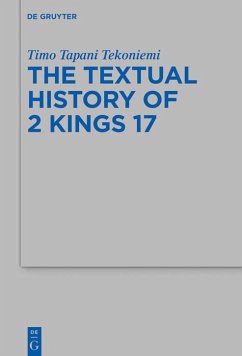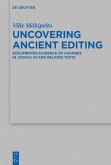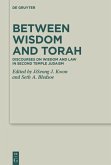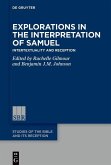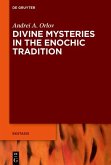Die BZAW akzeptiert Manuskriptvorschläge, die einen innovativen und signifikanten Beitrag zu Erforschung des Alten Testaments und seiner Umwelt leisten, sich intensiv mit der bestehenden Forschungsliteratur auseinandersetzen, stringent aufgebaut und flüssig geschrieben sind.
Timo Tapani Tekoniemi, University of Helsinki, Finland.
Dieser Download kann aus rechtlichen Gründen nur mit Rechnungsadresse in A, B, BG, CY, CZ, D, DK, EW, E, FIN, F, GR, HR, H, IRL, I, LT, L, LR, M, NL, PL, P, R, S, SLO, SK ausgeliefert werden.

